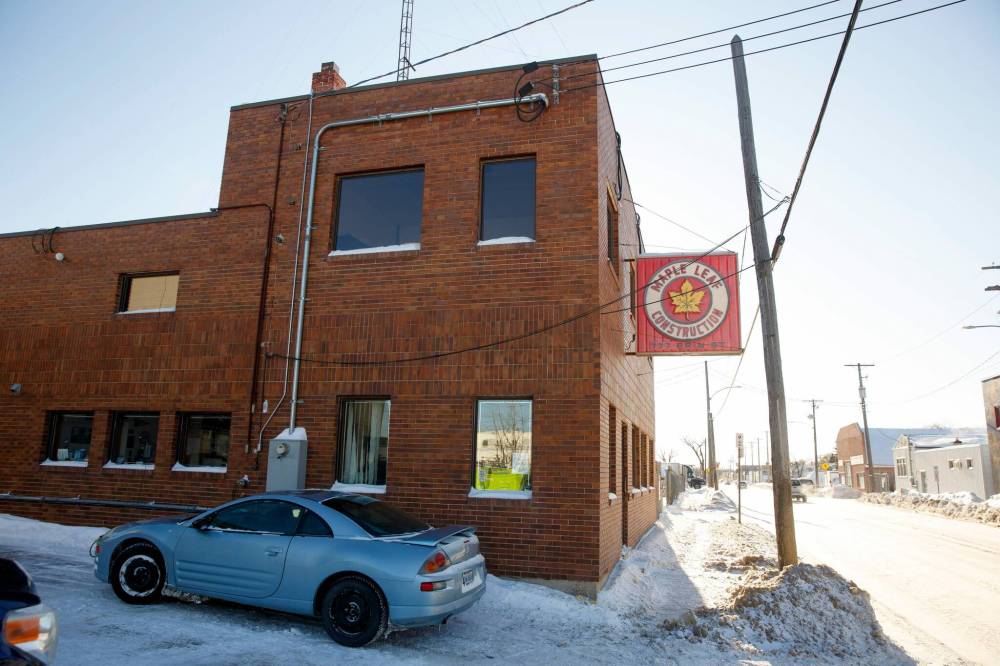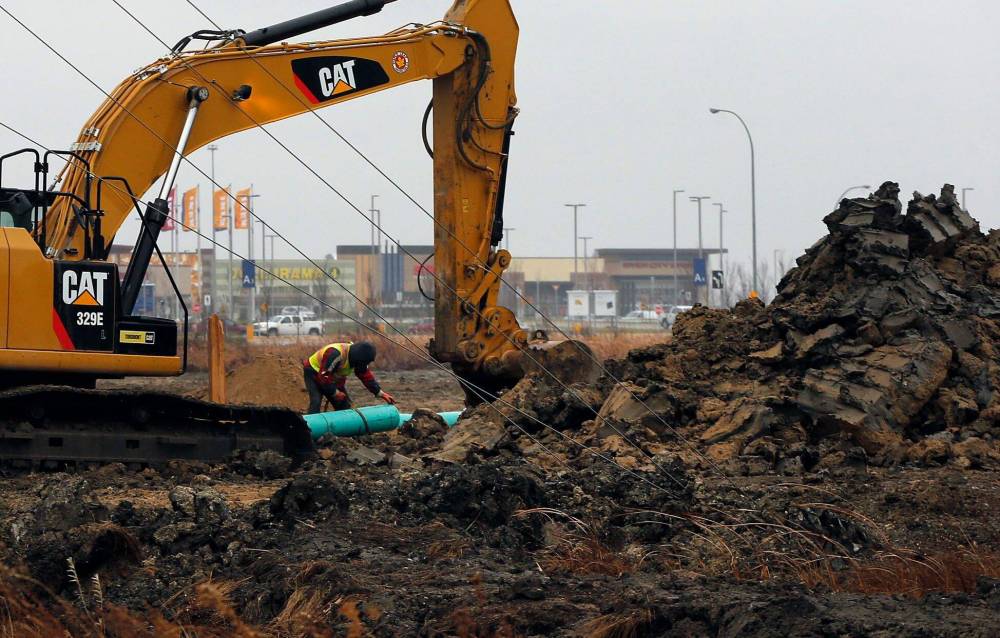City construction firm allegedly swindled out of $410K
Read this article for free:
or
Already have an account? Log in here »
To continue reading, please subscribe:
Monthly Digital Subscription
$0 for the first 4 weeks*
- Enjoy unlimited reading on winnipegfreepress.com
- Read the E-Edition, our digital replica newspaper
- Access News Break, our award-winning app
- Play interactive puzzles
*No charge for 4 weeks then price increases to the regular rate of $19.00 plus GST every four weeks. Offer available to new and qualified returning subscribers only. Cancel any time.
Monthly Digital Subscription
$4.75/week*
- Enjoy unlimited reading on winnipegfreepress.com
- Read the E-Edition, our digital replica newspaper
- Access News Break, our award-winning app
- Play interactive puzzles
*Billed as $19 plus GST every four weeks. Cancel any time.
To continue reading, please subscribe:
Add Free Press access to your Brandon Sun subscription for only an additional
$1 for the first 4 weeks*
*Your next subscription payment will increase by $1.00 and you will be charged $16.99 plus GST for four weeks. After four weeks, your payment will increase to $23.99 plus GST every four weeks.
Read unlimited articles for free today:
or
Already have an account? Log in here »
Hey there, time traveller!
This article was published 19/01/2022 (1423 days ago), so information in it may no longer be current.
A longtime Winnipeg construction company has filed a lawsuit against National Bank of Canada after fraudsters claiming to be a subcontractor allegedly bilked the company of nearly $410,000.
The money was funneled through an account with the bank by scammers who remain unidentified, according to a statement of claim filed last week in Manitoba Court of Queen’s Bench by Maple Leaf Construction Ltd.
According to the statement of claim, Maple Leaf was the general contractor on a project installing concrete culverts underneath a highway when, in January 2021, it retained another company, Tri-Core Project Ltd., as a subcontractor for the project.
In an email to Maple Leaf three months later, fraudsters posing as representatives of Tri-Core claimed the company’s banking information had changed and asked when Maple Leaf intended to make its next bill payment so it could arrange for an electronic fund transfer, says the statement of claim.

Three days later, Maple Leaf received another email from the fraudsters including what was purported to be Tri-Core’s new direct deposit information. At Maple Leaf’s request, the fraudsters provided the company a void cheque which corresponded to the bank account.
On April 30, Maple Leaf authorized an electronic fund transfer through its bank. A week later the fraudsters sent an email to Maple Leaf claiming one of the invoices had been paid, but there had been “a problem with transmission to the account, and accordingly, new account information was provided,” says the statement of claim.
A day later, Maple Leaf’s bank advised the company that National Bank, the bank that had received the funds, was questioning the validity of the transfer, given that the recipient’s name did not match the name listed, says the statement of claim.
The next day, Tri-Core confirmed in an email to Maple Leaf it had made no changes to its bank account and had not sent Maple Leaf any emails indicating it had done so.
National bank froze the suspect account, but some of the “misdirected funds” had already been “diverted” to the fraudsters, says the statement of claim.
National bank froze the suspect account, but some of the “misdirected funds” had already been “diverted” to the fraudsters, says the statement of claim.
Maple Leaf is seeking an order that National Bank pay restitution or damages equal to the money it lost, plus interest.
Lawyers for Maple Leaf could not be reached for comment.
The allegations have not been proven in court.
Maple Leaf Construction was founded in 1943 and now employs more than 900 people, according to its website.
Maple Leaf isn’t the only business bamboozled by scammers posing as trusted industry associates. The fraud is one of the dozen types of frequently-practiced swindles that target businesses large and small each year, according to the Canadian Anti-Fraud Centre.

Other common business scams include threats to bring down a company’s website or internet services if they don’t pay a ransom, threats to turn off utilities for supposed unpaid bills, and payroll frauds directing employers to deposit an employee’s paycheque into a fraudulent account.
In Winnipeg’s most recent high-profile business fraud, Peter Ramdath, former chief financial officer of R. Litz and Sons Company Ltd., was sentenced in 2020 to six and a half years in prison after admitting to siphoning more than $4 million from the 104-year-old crane company, sending it spiralling into financial ruin and ultimate dissolution.
Businesses can take several steps to reduce their vulnerability to fraud, including closely inspecting invoices for authenticity, keeping a list of verified business contacts, and limiting the number of staff who have bill-paying authority, says the anti-fraud centre.
As of Nov. 30, over 46,000 Canadians reported being the victims of fraud in 2021, with losses totaling $231 million.
According to the centre’s most recent figures, as of Nov. 30, over 46,000 Canadians reported being the victims of fraud in 2021, with losses totaling $231 million, more than double the previous year.
Fraud victims are urged to contact their financial institutions immediately, when appropriate, and report the incidents to local police and the Canadian Anti-Fraud Centre online or by phone at 1-888-495-8501.
dean.pritchard@freepress.mb.ca


Someone once said a journalist is just a reporter in a good suit. Dean Pritchard doesn’t own a good suit. But he knows a good lawsuit.
Our newsroom depends on a growing audience of readers to power our journalism. If you are not a paid reader, please consider becoming a subscriber.
Our newsroom depends on its audience of readers to power our journalism. Thank you for your support.





